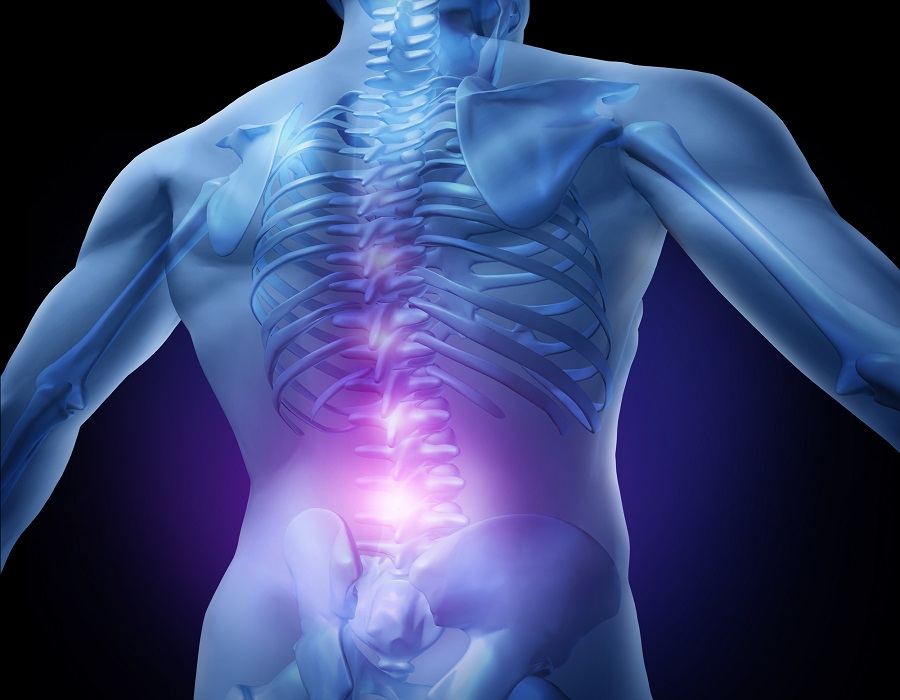
If you or someone you love has chronic lower back pain, you might believe that you have tried everything under the sun to find relief, including over the counter pain medication, stretching exercises, physical therapy, and enough hot baths to keep your fingers permanently wrinkled.
Some psychologists believe that pain is more than a physical feeling, but an emotional one and that by controlling your emotions through meditation, pain can be reduced.
Is this really possible? Can lower back pain be managed by using a mind over matter (pain) technique?
Let’s delve deeper into this subject and see if science can back up these ideas.
The Mind/Pain Connection
Pain is the body’s way of letting you know that something is wrong.
Whether you have a paper cut or a herniated disc, pain tells you something is “broken” and needs to be repaired.
How the brain processes injuries and then shares the information is all related to the level of pain you are feeling.
This explains why some people walk on a broken ankle and don’t seem aware of it while others claim to be dying over that same ankle.
Since your brain controls your thoughts, your emotions, and how you process pain, it makes sense that when you treat the problem (a herniated disc for example) you should also be taught to manage pain by using cognitive behavioral therapy and meditation.
What is Meditation?
Meditation might bring to mind images of bearded gurus in white robes, but the fact remains that mediation is an ancient practice that teaches people to focus on one thing and one thing only for a period of time.
By shifting your attention away from pain and focusing on something quiet, calm, and soothing, it can reduce inflammation and pain.
The Benefits of Meditation
Meditation is well-known for having multiple benefits, including stress relief, reduced feelings of stress and anxiety, lower levels of depression, lower blood pressure, and improved concentration.
A reduction in feelings of stress and anxiety, as well as depression, also has a direct effect on how you experience pain.
Whenever you anticipate pain, the neuronal pathways are programmed so that simply anticipating pain will cause you to feel more intense pain.
Meditation rewires your brain so that your focus is more on peace and calm, rather than pain.

Detach from Pain
When you have chronic pain, you can’t help but anticipate that the pain will continue and might become more severe.
Anticipation leads to stress.
Who wouldn’t be stressed at the thought of more pain or more intense pain?!
One thing chronic pain sufferers do NOT need is more stress.
Through meditation, you learn to relax and release stress.
Meditation will teach you to detach yourself from those feelings of pain and place your focus on something else.
This doesn’t mean that you won’t feel any pain or that your chronic pain will magically disappear, but by releasing your emotional reaction to pain, your feelings of anxiety and stress while relaxing into thoughts of a calm and tranquil place, you disconnect from your pain.
Use Meditation, NOT Opioids
The commonly used treatment for chronic pain is opioid-based medications.
Overuse and misuse of these types of medications have led to thousands of deaths in the US, with an estimated 50,000 dead in 2019 alone.
Studies show that mindful meditation engages unique mechanisms in the brain that reduces the subjective experience of pain.
Nutrition, Pain, and Meditation
By now, you’ve probably heard the term “brain food’ but you might not know what that actually is.
Since feelings of pain and mediation both occur in the brain, it only makes sense that your brain must have vital nourishment to operate at its optimum.
To keep the control center of your body working at its best, brain-boosting foods that you should include in your daily diet would be:
- Fatty Fish (such as salmon, sardines, and trout). With at least 60 percent of your brain made from fat and one-quarter of that fat is made from Omega-3, it only makes sense that you consume several servings of fatty fish each week or take supplements if you don’t like fish.
- Blueberries-These fruits are loaded with antioxidants that accumulate in the brain and improve communication between the brain cells.
- Curcumin (Turmeric)- Curcumin is the active ingredient in turmeric, which is one of the most studied spices in the world. Curcumin can ease depression and helps the brain grow new cells.
- Broccoli- This dark green veggie is packed with vitamin K, which is vital for the formation of a type of fat that is packed into brain cells.
There are many other foods that your brain would benefit from, including dark chocolate, pumpkin seeds, even coffee.
You can help to support a healthy brain and improve your meditation experience by consuming plenty of brain supporting foods in your daily diet.
Remember that you should speak with your doctor, pharmacist, or chiropractor if you are currently taking any type of prescription medication.
The Bottom Line
Meditation has been shown to help reduce feelings of pain, even those with chronic low back pain.
By detaching from pain, you can greatly reduce stress, anxiety, depression, and pain.
Eating a “brain-healthy” diet will help to improve your meditation sessions. Use meditation rather than addicting opioids to reduce pain levels naturally.
If you are still experiencing chronic low back pain and even meditation isn’t giving you release from intense pain, it might be time to see a professional.
There are many reasons to see a chiropractor, but chronic low back pain, especially if your pain has not been diagnosed, should be inspected by a trained chiropractor.
Live your best life and don’t suffer in pain when you can meditate yourself to a better place.
About Dr. Wells:

Dr. Brent Wells is a licensed chiropractor who founded Better Health Chiropractic & Physical Rehab in 1998. He is currently leading 10,000 Alaskans to more active and pain-free lifestyles without drugs or invasive surgeries. He brings a progressive and highly innovative approach to chiropractic care and massage therapy in Anchorage. Dr. Wells continues to further his education with ongoing studies in spine conditions, neurology, physical rehabilitation, biomechanics, occupational ergonomics, whiplash, and brain injury traumatology. He is also a member of the American Chiropractic Association and the American Academy of Spine Physicians.
You may also be interested in:
4. Music For Meditation, Relaxation, Sleep, Focus and More

